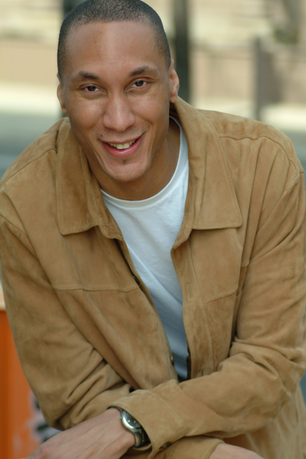 I wasn’t quite sure about what I would write, but I felt compelled to write something in order to offer some insight. As a child of the ’70s and the “TV generation,” I grew up watching Fat Albert and the Cosby Kids. What’s curious is that if someone were to ask me about how the opening theme song to the show goes, I could easily start signing “Nah, nah, nah, gonna have a good time! Hey! Hey! Hey!” I believe that the best lesson that I learned from watching the show as a child is that true friendship is enduring and takes patience with oneself and those whom I am connected to. Moreover, the show offered me a sense of identity seeing animated Black kids who looked like some of the kids in my neighborhood in Toledo, Ohio (well, maybe not Dumb Donald).
I wasn’t quite sure about what I would write, but I felt compelled to write something in order to offer some insight. As a child of the ’70s and the “TV generation,” I grew up watching Fat Albert and the Cosby Kids. What’s curious is that if someone were to ask me about how the opening theme song to the show goes, I could easily start signing “Nah, nah, nah, gonna have a good time! Hey! Hey! Hey!” I believe that the best lesson that I learned from watching the show as a child is that true friendship is enduring and takes patience with oneself and those whom I am connected to. Moreover, the show offered me a sense of identity seeing animated Black kids who looked like some of the kids in my neighborhood in Toledo, Ohio (well, maybe not Dumb Donald).
During the late ’80s and early ’90s when I was in college, my friends and I would not allow anything to take precedence over watching the “Cosby Show” or “A Different World” on Thursday nights. The campus at Hampton University and probably other HBCUs across the country were silent during that hour of television as the shows depicted a Black middle to upper-middle class lifestyle and the characters were accessible and familiar.
Issues about remaining in college, dating, racism, alcoholism/drug usage, family and other topics took center stage on the show and kept Black students and folks around the country glued to the television to see reflections of themselves on primetime television.
As a graduate student at UPenn, I felt fortunate at the time to meet Bill Cosby at the Penn Relays. My work study position was in the Center for Community Partnerships and that enabled me to have a field pass at the national track meet. I approached Dr. Cosby and asked for a picture with him and without hesitation he agreed. Almost 20 years later, I still have that picture today on the mantle in my office.
Like many others, I am fighting through my denial about the allegations against Bill Cosby because at one time, he was “America’s Dad.” On one hand, there are so few representations of positive Black men in the media that it is easy to be enamored with his charisma, generosity and sense of self.
On the other hand, the professional side of me has a background in sex addiction and it saddens me that I assumed that there would probably be others to come forward. When the first allegation came out publicly a couple of weeks ago, I shared with some colleagues of mine that the initial reports were only the tip of the iceberg. In other words, I speculated that there would be many more women who would come out to share their story about their interaction with him.
The sexual addiction cycle suggests several components to acting out behavior, including faulty belief systems, impaired thinking, preoccupation, ritualization, sexual compulsivity, despair, and unmanageability (Carnes, 1992). In other words, privilege, sexism, entitlement, power, access to resources, obsession, compulsion, low self-esteem, and loss of control are intricately woven into what is turning out to be sad story.
Typically, when a person acts out sexually in this manner, it is not done in a vacuum. There are usually others who advertently or inadvertently enable the behavior. This makes the situation significantly more complex because it suggests that others may have known what was going on, with whom, the surrounding circumstances and possibly the frequency.
As I continue to process these allegations against Bill Cosby, I would be remiss if I did not applaud the courage of the women who came forward. I understand that sexual coercion is emotionally, behaviorally, and socially complex and that there are a myriad of factors involved.
Whether it happened yesterday, last month, last year, 10 years, or 50 years ago, rape is never okay or should be minimized, ridiculed, or dismissed.
I can only hope that the truth continues to be revealed and that all parties involved receive help and support.
 Dr. James Wadley is an Associate Professor and Director of the Master of Human Services Program at Lincoln University. He’s a licensed professional counselor and marriage, family, and sexuality therapist in Pennsylvania and New Jersey. He is also the Founder and Editor of the Journal of Black Sexuality and Relationships. Follow him on Twitter @phdjamesw
Dr. James Wadley is an Associate Professor and Director of the Master of Human Services Program at Lincoln University. He’s a licensed professional counselor and marriage, family, and sexuality therapist in Pennsylvania and New Jersey. He is also the Founder and Editor of the Journal of Black Sexuality and Relationships. Follow him on Twitter @phdjamesw






